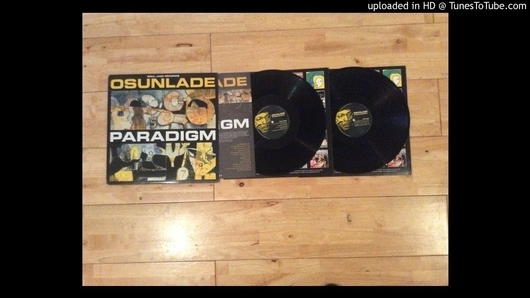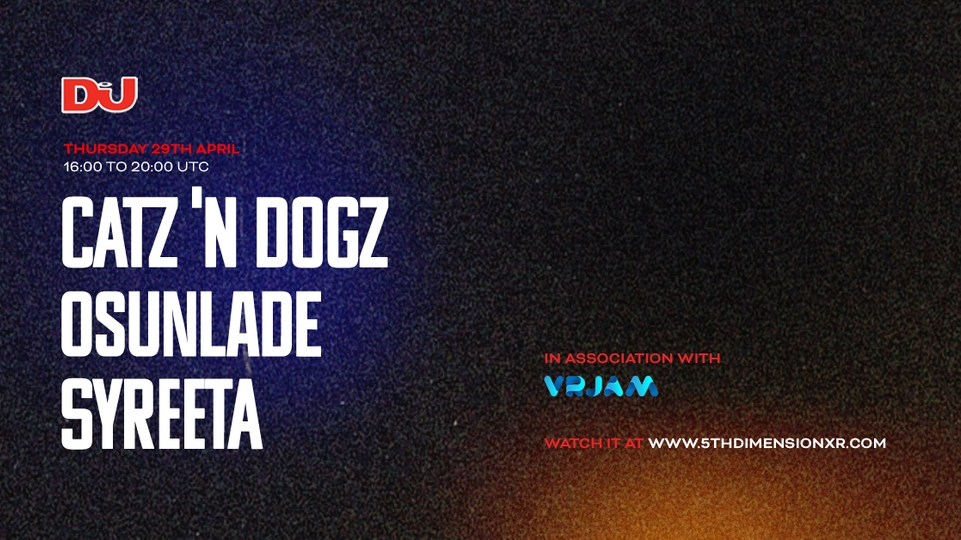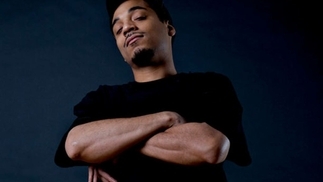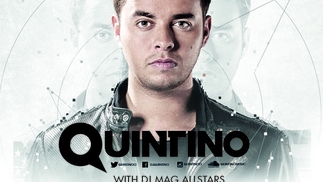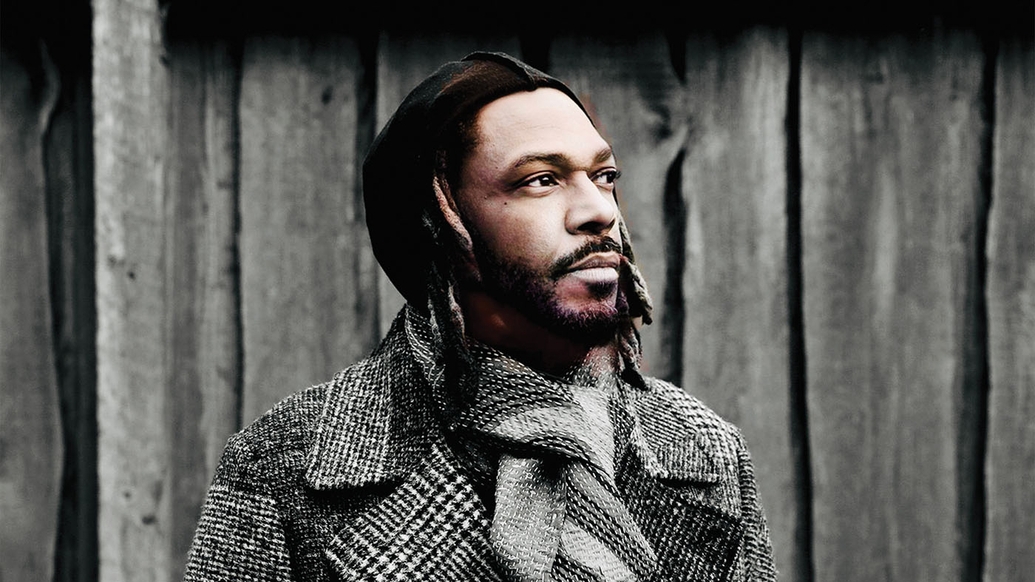
Osunlade: spiritual state of mind
Producer of soul greats, maker of classic house records, ordained Yoruba priest and avid live streamer, Osunlade has lived a remarkable life so far. He tells Ria Hylton how remaining independent has been vital to his creativity and career
Nomads. They roam new lands, find fresh pasture and feed their flock. Osunlade — an ordained Yoruba priest — has something of the shepherd about him. His intricately-woven robes, beaded bracelets and wooden earrings give the underground hero a wandering air. He’s also been known to mentor artists on the road, flying them over to wherever he happens to be. But after our Zoom call it becomes clear that, if anything, he’s more punk in spirit. An unwavering artistic vision and DIY frame of mind has landed the St. Louis native in places as far flung as Puerto Rico, Santorini and Berlin, living solely for the next musical inspiration.
“I’ve never had a manager or a publisher — this is a one-man show,” he tells DJ Mag. “I know I could probably be much further along if I had people in my pocket, but I don’t trust people like that, and I think, if I’m gonna fuck it up, let me do it myself.”
This approach has borne good fruit. After a near-decade producing mainstream artists in LA, Osunlade headed east, took a two-year spiritual sabbatical and launched Yoruba Records. Early on, he established two rules: 1) only sign artists willing to be mentored, and 2) only release works you believe in.
Two decades later — a lifetime in electronic music — and Yoruba is still delivering deep, soul-stirring cuts, all made with four-four in mind. The label released house hits such as Erro’s ‘Don’t Change’ and DJ Fudge and Hallex M’s ‘Simpatico’, and has been a home for heavyweights Boddhi Satva and Vince Watson. As an artist in his own right, Osunlade was known first for his remixes, including the classic ‘Closer I Get’, before releasing ‘Paradigm’ in 2001, an era-defining house album. The early 2000s’ neo-soul movement was the perfect launching pad for the Osunlade sound — organic, percussive, spiritual — and as time shows, it’s a sonic constellation with real staying power.
We catch up with the artist after his morning walk with Corky, his three year old rescue dog. “I can’t wake up and do anything until I walk him — he will follow me around and cry,” he says jokingly, “but he’s definitely giving us a different energy in the house.” You’ll spot Corky, a pitbull mastiff, in Osunlade’s near-daily Twitch streams, wandering in and out of the frame while his owner spins old and new cuts from his basement. A leather bench, disco ball and silver Buddha, along with a few other choice items, fill the sepia frame as Osunlade takes us through contemporary rap and UK jazz, to post-disco and habibi funk. It’s a trippy, low-key affair.
“It’s been absolutely the best three years of my life,” he beams, talking about his new online community. “I wake up everyday and have a party in my house.”
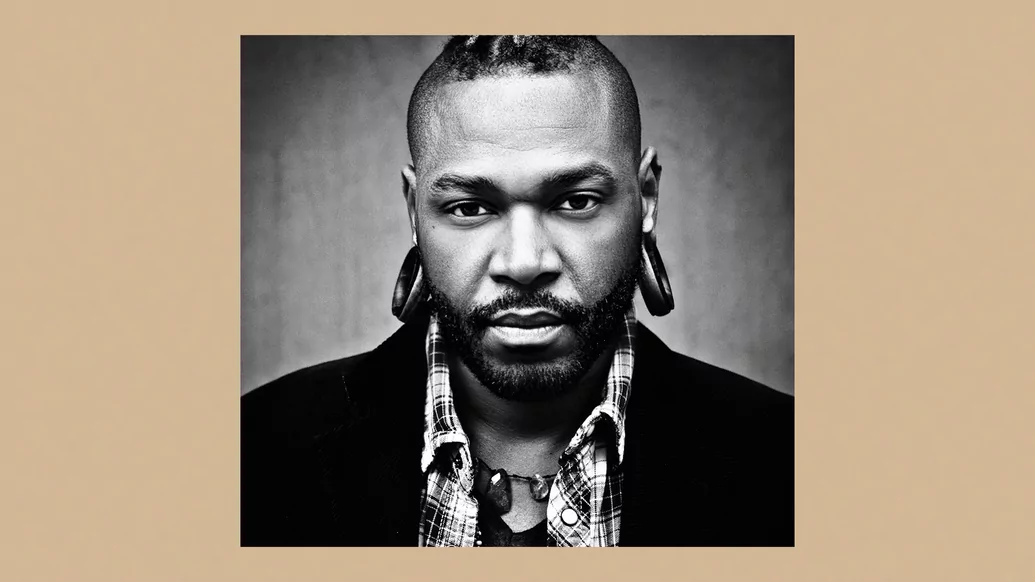
“For me, whenever I step in the studio, I ask myself, how do I feel? What’s going on in my life? What do I need to release? What do I need to explore?”
After over a decade living in Europe, Osunlade moved back to St. Louis in 2017 to look after his mother. He continued to tour most months of the year, but when the pandemic struck, he entered one of his most productive periods, releasing three albums — including ‘orb.it’ under his Afefe Iku alias — a handful of singles and a hip-house EP with LA rapper Mr. Flip. “When you think of hip-house, you think of Fast Eddie, like, ‘Eww, no thank you!’” he laughs, “but this project has brought everything full circle, it’s given a renewed sense to everything I do.”
There have been slight sonic shifts over his career and many ups and downs, but Osunlade’s intent has remained the same all along. “For me, whenever I step in the studio, I ask myself, how do I feel? What’s going on in my life? What do I need to release? What do I need to explore?” he explains. “A long time ago, I realised humans don’t really appreciate artists until they’re gone, so I started making music for when I’m gone, because it’ll be there. They’ll get it then, so that’s my thing.”
It was in 1978, on the way to his grandfather’s funeral, that Osunlade realised he wanted to be a full-time musician. Prince’s ‘Soft & Wet’ was on the radio, and his father had begun to cry. It was the first time he’d seen his dad tear up, but all the 10-year-old could think about was this new sound. His teenage years were spent listening to Prince, prog rock band Gentle Giant, Kraftwerk and Tom Tom Club while he worked out his sound in different bands. By the age of 13, inspired again by the Purple One, he was playing all the instruments bandmates had left behind in his parents’ basement.
“I was like, ‘Wow, this man is doing all this music by himself. I want to do that. I don’t want to depend on anyone,’” he remembers. “In a band, every month either the drummer’s fired or he’s leaving or he’s late. I was like, ‘You know what, I need to just know how to do this shit myself’.”
Osunlade’s parents, hippies at heart, were well-known for their weekend house parties; he remembers stepping over sleeping adults strung out on the floor among sachets of marijuana as early as six. But the relationship with his mother became strained, and at age 16 he moved out.
Two years later, he was sofa surfing in LA, living for a time with Toni Basil of ‘Oh Mickey’ fame and scoring music for film. Soon he was producing for the likes of Freddie Jackson, Musiq (fka Musiq Soulchild), and even Patti Labelle. “I only met her [Patti] once, though — when we actually recorded the songs,” he says. “She did it all in one take and we partied the rest of the night.” From the late ’80s to the mid ’90s, Osunlade rode the wave, producing for whoever asked and meeting more influential people.
“I was young and wanted to be the biggest producer and make the most money. That was my headspace. I was like, ‘I’m gonna hustle, meet these people and do this thing’.” But then Hush Productions, the company managing him, went bankrupt and the phone calls stopped. It was a devastating but valuable lesson for the musician. “I met a lot of people, but through that I learned that you’re guilty by association, no matter who you are,” he explains. “I was like, ‘Okay, it’s time to leave’. So I moved to New York, and that’s when I became a priest.”
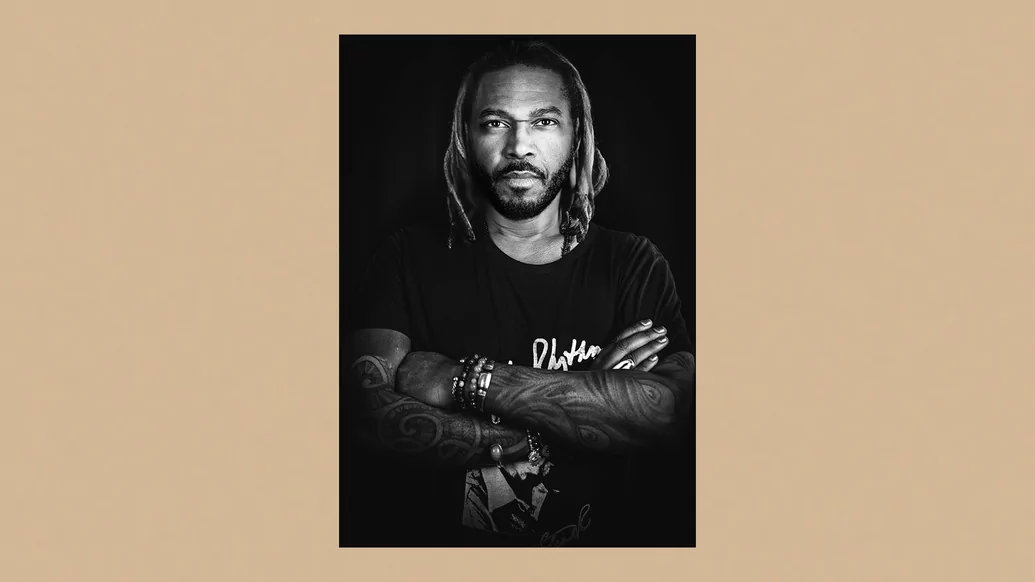
“I’m always looking for the new sound of myself. I’m not trying to be flashy—I want to make music that touches people. I want to make notes that actually make your vibration move.”
Spirituality has played an increasing role in Osunlade’s musical life and Yoruba Records, founded in 1999, takes its name from the Yoruba people of West Africa and the nature-based faith Osunlade follows.
“In New York I was dating a palero (a priest that deals with dead spirits) and his parents were Yoruba priests and really religious. I spent a lot of time with them, that’s how I got introduced to it.” Not long after, Osunlade took part in an ordination ceremony, an austere, week-long event held in silence. This was followed by a year wearing only white, avoiding mirrors and the physical touch of others. He was finally crowned Osun, goddess of the river.
Osunlade likens the spiritual practice more to a culture than a religion, where natural elements are comparable to different gods. “All the orishas are just like nature. They all guide your life in the specific things that you need help with. If I’m in some situation, they’re gonna move it out of my life or move my mind into dealing with it.” And he’s dealt with a lot, from trusting fly-by-night hustlers early on in his career, to learning in 2011 that his soon-to-be-released album ‘Pyrography’, three years in the making, had already been made available online — for free.
‘Envision’, the record’s biggest single, debuted at Movement Festival and blew up in Ibiza, but as he did the press rounds for the LP, Osunlade announced that this would be his last house album. We touch briefly on the topic in our conversation, but it’s clear from past interviews that the album leak hit quite hard. Having worked with Australian pyrographer Scott Marr for the album’s visuals, sourcing natural materials from all over the globe, he was done with the throwaway attitude he felt many had towards electronic music. “That was the worst, that wasn’t nice,” he offers, with a rueful smile. But in 2020, Osunlade announced another full-length house album, ‘Basic Sketches For Beginners’.
The record opened with ‘Amnesia’, a track taking aim at the present- day dance music scene, followed by ‘Don’t Hang Up’, a Daft Punk- infused riff on the Vanity 6 classic, and ‘Uh Huh’, a jacking, aquatic funk cut. The soulful house giant had re-arrived with a techier sound. How to explain this new turn? “I’m always looking for the new sound of myself,” he replies. “I’m not trying to be flashy — I want to make music that touches people. I want to make notes that actually make your vibration move.”
It’s something he’s at pains to share with the artists he mentors. “Sometimes I’ll have artists play me shit, and I’m like, ‘There’s no fucking way’,” he booms into the camera. “We’re trying to connect with people, man. That’s why I do proper A&R. There’s no rush to release anything because I have to live with this shit for the rest of my life. I get all those production tricks, but if you don’t love it, if you don’t jam out to it like it’s the best thing ever, then no one else will.”
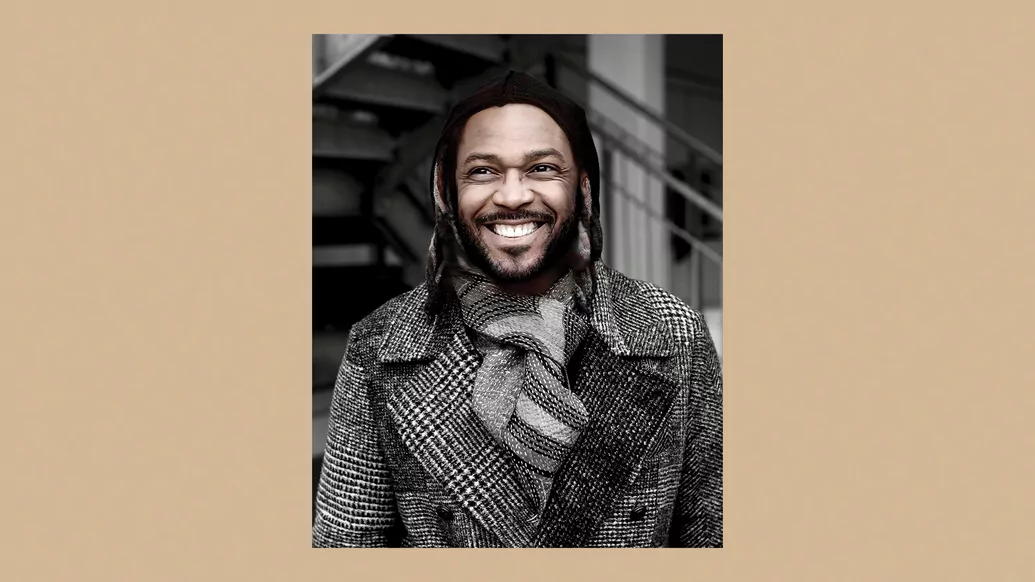
The pandemic has not only brought Osunlade closer to his fans, it’s also pushed him into new DJ territory. Long-haul flights have been swapped for interstate trips, landing him in new plains, like Charlotte, North Carolina. “Charlotte’s the first small town that I’ve been to that’s truly mixed. It’s white and Black — and mostly women, and they are giving it,” he smiles. “I play for the women. The dudes I don’t care about. The dudes are only there to judge — I’m playing for the women, I want to see you move.”
It’s also been an opportunity to reflect on a career spanning more than three decades. The electronic music landscape would look very different without an Osunlade; his influence across the deep, Afro, ancestral and soulful house genres remains unmatched. What’s his take on his story so far?
“A lot of us in our scene, we were the guys who were hot in the early 2000s, and now there’s a whole slew of guys, but we’ve all carved our own thing. I look at Dego and Kaidi, all these guys are kicking ass — we’ve cultivated our own tribes. All I need is my tribe.”
And the future? “I’m an optimistic guy and I really understand that this moment is a blessing. I know I’ve been here many times, I don’t know if I’m coming back — I doubt it — so every moment, I’m just gonna enjoy it.”
